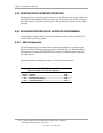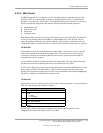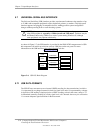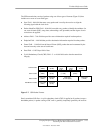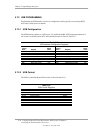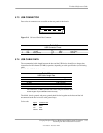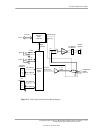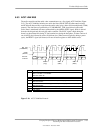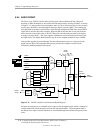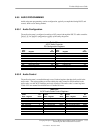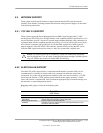
Chapter 5 Input/Output Interfaces
5-26 Compaq Deskpro EXS and Workstation 300 Personal Computers
Featuring the Intel Pentium 4 Processor
First Edition – December 2000
5.8 AUDIO SUBSYSTEM
The systems covered in this guide come standard with an embedded Sound Blaster 128 audio
subsystem.
5.8.1 FUNCTIONAL ANALYSIS
A block diagram of the audio subsystem is shown in Figure 5-10. The Ensonic ES1373 Audio
Controller, operating off the PCI bus, accesses and controls a Cirrus Logic CS4297A Audio
Codec. The codec provides the analog-to-digital (ADC) and digital-to-analog (DAC) conversions
as well as the mixing functions. All control functions such as volume, audio source selection, and
sampling rate are controlled through software over the PCI bus through the ES1373 Audio
Controller. Control data and digital audio streams (record and playback) are transferred between
the Audio Controller and the Audio Codec over the AC97 Link Bus.
The analog stereo outputs from the codec are applied to a 3-watt mono amplifier that drives a 16-
ohm speaker.
The interfaces allowing connection to external audio devices include:
Mic In - This input uses a three-conductor (stereo) 1/8” phone jack that is specifically designed for
connection of a condenser microphone with an impedance of 10-K ohms. This is the default
recording input after a system reset.
Line In - This input uses a three-conductor (stereo) 1/8” phone jack that is specifically designed
for connection of a high-impedance (10k-ohm) audio source such as a tape deck.
Headphones / Line / SPDIF Out - This output uses a three-conductor (stereo) 1/8” phone jack
that is designed for connecting a set of 16-ohm (nom.) stereo headphones or powered speakers.
Plugging into the Headphones jack mutes the signal to the internal speaker. This jack also provides
a digital output signal conforming to the Sony/Philips Digital Interface (SPDIF) format.



